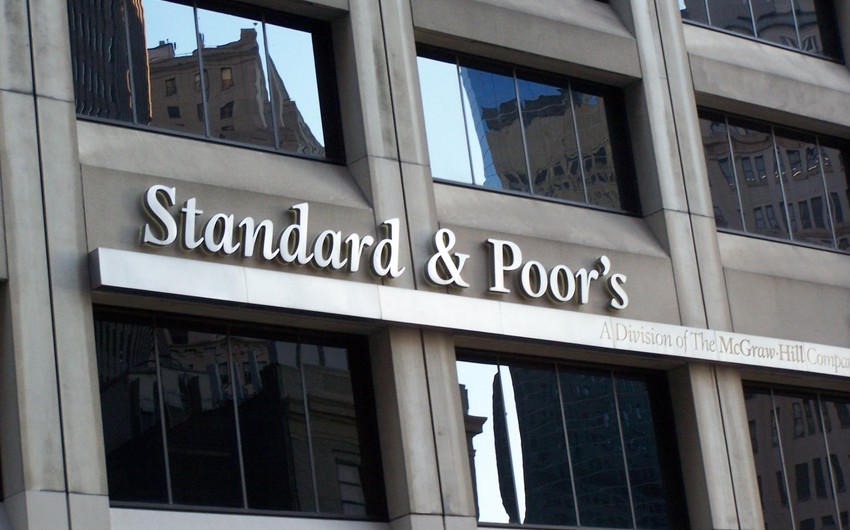Baku. 1 August. REPORT.AZ/ S&P Global Ratings revised the outlook on the long-term sovereign credit ratings on the Republic of Azerbaijan to negative from stable. At the same time, we affirmed the 'BB+/B' long- and short-term ratings on Azerbaijan, Report informs referring to the S&P Global Ratings.
"The outlook revision primarily reflects what we see as risks of Azerbaijan’s weak economic performance becoming more persistent. We now expect the economy will contract by 3% in 2016 (compared to our prior expectation of a milder 1% recession), before recovering to about 3% economic growth after 2017. In our view, should the anticipated recovery not materialize, this could have several negative implications. Specifically, we believe that declining living standards may reduce the sovereign’s fiscal flexibility in the future as the authorities are pressed to hike spending for social or political reasons. It could also put additional strain on the already vulnerable banking system.
Both scenarios could put pressure on our ratings on Azerbaijan. Azerbaijan depends heavily on the hydrocarbons sector, which represents about 40% of GDP and close to 95% of merchandise exports. Preliminary estimates suggest that real GDP reduced by over 3% in year-on-year terms over January-June 2016. We have revised down our growth forecasts and now anticipate the Azerbaijani economy to contract by 3% in 2016. Nevertheless, we continue to expect the recession to be short-lived, with the economy returning to growth already in 2017, partly supported by the foreign investments linked to the large Shah Deniz II gas project, which will bring gas from Azerbaijan to Europe" the rating agency says.
"Although the weak macroeconomic performance in the first half of 2016 is likely partly due to lower government spending, we believe it nevertheless highlights the size of the negative impact of last year’s considerable decline in oil prices on domestic investments and income levels.
This impact is more significant than we anticipated. We also continue to see risks to Azerbaijan’s future economic performance if some of the foreign investments in the oil and gas sector do not materialize as planned or are delayed. This could be the case, for example, if oil prices do not recover in line with our current expectations.
We believe that against the background of oil prices recovering only moderately in 2017-2018, overturning the more adverse economic trends would increasingly depend on the government's reform agenda including through the promotion of fundamental economic and institutional changes and stepping up efforts to diversify the economy.
Falling incomes have already resulted in rising nonperforming loans, posing challenges to the country’s banks. In our view, if the downturn proves more significant then we presently expect, this could further pressure the already vulnerable financial system"
"Following a decade of strong external current account surpluses of more than 20% of GDP on average, Azerbaijan’s current account posted a deficit of 0.4% of GDP in 2015 as nominal exports contracted sharply in response to lower oil prices while imports remained elevated. That said, we do not expect a widening of last year’s deficit in 2016 because the sizable contraction in domestic consumption will likely lead to a reduction in imports. We anticipate that the current account surpluses will re-emerge from 2017 as oil prices recover and gas exports from the new Shah Deniz II field begin. The surpluses will remain much smaller than previously, even as the gas exports kick in, because of depletion in existing oilfields and profit repatriation to the foreign partners in the new gas field", S&P Global Ratings points out.
"S & P" says, the real exports growth is expected since 2018 - it will up by 3.8% in 2018, and 5.5% in 2019.


 https://static.report.az/photo/072714f8-17ca-455b-a16c-bbf46da7c9bc.jpg
https://static.report.az/photo/072714f8-17ca-455b-a16c-bbf46da7c9bc.jpg

